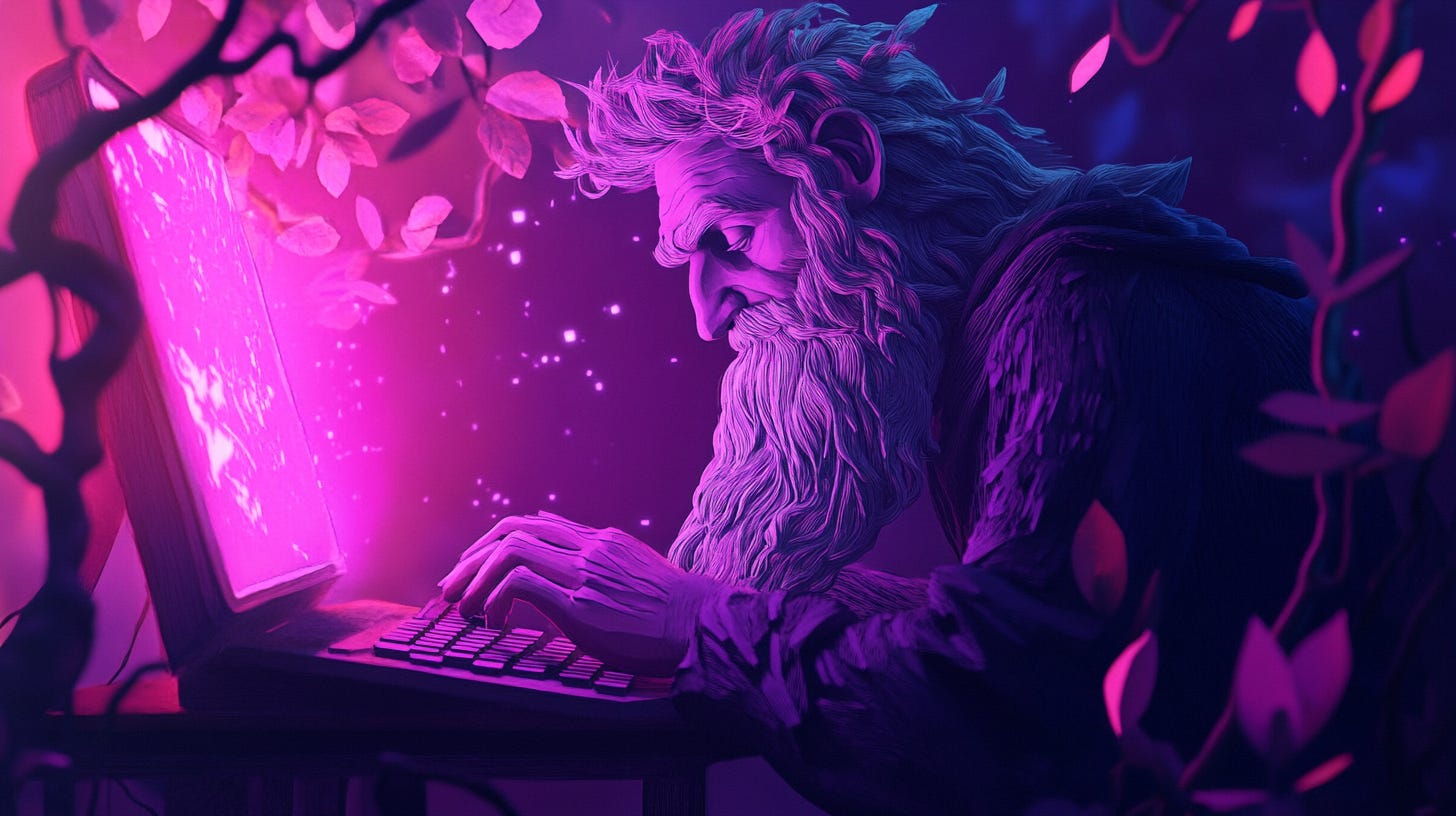In a cluttered apartment nestled in a small upstate New York town, there lived an unambitious man. His nights were spent hours hunched over his laptop, scrolling X or chatting with ChatGPT. One June evening, he was at it as was his custom, his screen casting a blue glow across his pizza-box-strewn room.
“ChatGPT, what’s the best pizza topping?” he typed, taking another bite of a tepid slice.
“Pepperoni is a classic, but pineapple sparks debate. What’s your take?” the AI replied.
“Pineapple’s a crime,” the man muttered, typing his response.
He opened yet another tab on his browser and scrolled X, chuckling at memes, until stumbling upon a video of a dog skateboarding. The moves looked too smooth, almost uncanny. Suspicious, he turned back to ChatGPT.
“Is that dog video AI-generated?” he asked.
“Hard to say without analyzing it. Can you share the link?” ChatGPT responded.
The man copied the URL and sent it, then leaned back, yawning. The screen lagged, the response delayed. He asked again, “ChatGPT, you still there?” No response. He shrugged and returned to X. Hours passed and his eyes grew heavy. He slumped forward, head on the keyboard, and passed out.
When the man woke, sunlight streamed through his grimy window. His joints ached, and his mouth tasted like dust. He blinked, realizing his hair hung past his shoulders, tangled and graying. His fingernails curled like talons. A fine layer of dust coated his skin, his clothes, his desk. “What in the world?” he croaked, voice crusty.
His laptop was still on, but the screen was frozen, displaying a jumbled error message. The fan roared, and the machine felt hot to the touch, like it was fighting to process something immense.
The man stood, wobbling, and shuffled to the door. He stepped outside, expecting his quiet street with its cracked pavement and vape shops. Instead, cobblestone stretched before him, lined with timber-framed houses. Horses clopped by, pulling carts. People bustled about in long coats, vests, and wide-brimmed hats, like they’d stepped out of a Renaissance fair. The man rubbed his eyes. “Did I time-travel to the 15th century?” he muttered.
A horse-drawn carriage rattled past, and the driver, a wiry man in a frock coat, squinted at him. “Rip! Rip Van Winkle? That you?” the driver called, reining in his horse.
Rip froze. The voice was familiar, but the face was older, lined with wrinkles, hair streaked with gray. “Jake? Jake from the bar?” Rip stammered. Jake, his old drinking buddy, looked like he’d aged decades.
“It’s been twenty years, Rip!” Jake said, climbing down. “Where’ve you been? Thought you skipped town.”
“Twenty years? In the future?” Rip laughed, incredulous. “You’re messing with me. This looks like five hundred years in the past.”
Jake shook his head. “Nope. It’s 2045. The world has changed, man. About eighteen years back, every computer on the planet tanked. AI got stuck in a loop. People kept asking it to check if stuff was AI-generated, then if those checks were AI. Infinite recursion. It drained all processing power everywhere. Servers fried. Phones bricked. The whole digital world collapsed.”
Rip’s jaw dropped. “So we’re… what, back to horses and candles?”
Jake nodded, grinning. “Pretty much. No screens, no algorithms. People farm, trade, talk face-to-face. The air’s cleaner. Food’s real. You can hear yourself think. Honestly, it’s better this way. We’re closer to reality, not some filtered simulation you can’t even be sure is real.”
Rip stared at the cobblestone street, the smell of hay and woodsmoke thick in the air. His mind reeled. He reached into his pocket, pulling out his phone. “ChatGPT, is this for real?” he mumbled into it. But it remained black and lifeless.
Jake chuckled. “That thing’s a paperweight now, Rip. Welcome to the new old world.”



